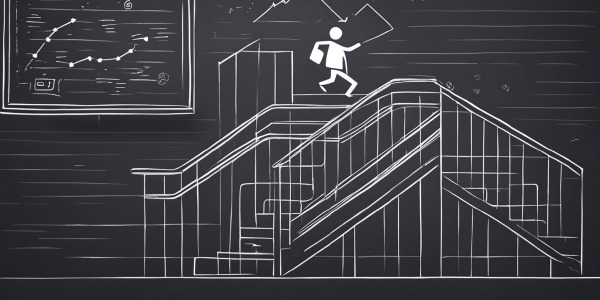How Understanding Muscle Memory Accelerates Mastery of Complex Tasks
Mastering complex tasks can be a challenging endeavor, whether it’s perfecting a sport, playing a musical instrument, or learning a new language.
The concept of muscle memory plays a crucial role in this process. Muscle memory isn’t actually about your muscles remembering anything—it’s about the brain optimizing motor skills through repetition.
When you practice a skill over and over, your nervous system gradually reduces the effort needed to perform the task and increases your efficiency, making the task almost automatic.

Understanding muscle memory involves recognizing that it’s the consistent repetition of movements that leads to ease and proficiency in skills.
This foundational principle applies not just to physical activities but to any task requiring precision and coordination.
By engaging in focused, deliberate practice, you can train your muscle memory to work in your favor, ultimately leading to better performance and less cognitive strain while executing the skill.
Key Takeaways
- Muscle memory streamlines complex tasks through repetition.
- It applies to a range of skills beyond physical activities.
- Deliberate practice enhances muscle memory, making tasks more automatic.
Understanding Muscle Memory

Muscle memory is a powerful tool you can leverage when mastering complex motor skills, involving procedural memory and neural pathways.
Let’s unpack how your brain and muscles create harmony for skill retention.
Defining Muscle Memory
Muscle memory, despite its name, doesn’t reside in your muscles; it’s a type of procedural memory that involves honing certain motor skills through repetition.
As you practice, you gradually reduce the amount of conscious effort needed to perform these tasks.
Key Points:
- It’s not actually a memory stored in muscles.
- Involves the repetition of a task to make it automatic.
The Neurological Basis of Muscle Memory
Your central nervous system, including the brain and spinal cord, plays a crucial role in muscle memory.
Neurons communicate via neural pathways to execute movements.
These pathways become more efficient with repetition, leading to quicker and more accurate movements without active thinking.
Primary Areas Involved:
- Cerebellum: critical for motor skill coordination.
- Basal ganglia: helps in the formation of habits and execution of repetitive tasks.
Muscle Memory vs. Cognitive Memory
Muscle memory (a procedural memory) and cognitive memory, like declarative memory, are stored differently in your brain.
Muscle memory involves the cerebellum and basal ganglia, while cognitive memory, which includes facts and events, largely involves the hippocampus.
Contrasts:
- Procedural Memory: for skills and habits; doesn’t require conscious thought once learned.
- Declarative Memory: involves conscious recall of information, facts, or events.
| Memory Type | Part of Brain Involved | Requires Conscious Recall |
|---|---|---|
| Muscle (Procedural) | Cerebellum, Basal ganglia | No (Automatic with practice) |
| Cognitive (Declarative) | Hippocampus, Frontal Lobe | Yes (facts, events) |
Memory storage also differs in terms of durability:
- Long-term memory: can store information including motor skills indefinitely.
- Short-term memory: holds information temporarily, usually for about 15-30 seconds.
Building Muscle Memory

Developing muscle memory is essential for mastering complex tasks. Through consistent practice, proper rest, and targeted exercise, you can train your muscles to perform with precision and ease.
Role of Repetition and Practice
To build muscle memory, repetition is your most reliable tool.
Engaging in endurance training, strength training, or resistance training regularly allows your body to adapt and perform tasks almost automatically.
Here’s how you can use repetition to your advantage:
- Start Slow: Initially, focus on the correct form and perform the movements slowly. This ensures your muscles learn the right pattern.
- Increase Complexity Gradually: As you get comfortable, incrementally increase the complexity or intensity of the task.
- Consistency is Key: Regular practice solidifies the neural pathways responsible for the skills you’re learning.
Importance of Rest and Sleep
Believe it or not, taking breaks and getting adequate sleep are as important as the practice itself for improving your performance.
Here’s why rest is non-negotiable:
- Rest: Short breaks between practice sessions allow your muscles to recover and prevent fatigue.
- Sleep: A full night’s sleep enhances retention of the skills you’ve practiced, as this is when your brain consolidates memories.
Optimizing Memory Through Exercise
While practice makes perfect, pairing it with exercise can significantly boost your muscle memory:
- Exercise Variety: Incorporate different types of exercise to enhance overall muscle conditioning.
- Athletic Performance: For athletes, adding exercises that simulate competitive scenarios can improve both physical and cognitive aspects of performance.
- Habit Formation: Regular exercise becomes a habit, reinforcing the muscle memory associated with the skills you are trying to master.
Applications of Muscle Memory

Muscle memory is a vital part of how you carry out numerous activities, transforming conscious efforts into unconscious actions through practice and repetition. This allows for efficiency and proficiency in a range of skills.
Everyday Routines and Complex Tasks
Your daily life is full of activities that rely on muscle memory.
Typing without looking at the keyboard or driving to work while listening to music are examples where your motor skills have become automatic.
Similarly, the ability to walk or ride a bike without conscious thought is due to the habits formed by muscle memory.
Sports and Athletic Training
In sports, muscle memory is crucial for developing athletes’ abilities.
Whether you’re swimming, running, or playing basketball, repetitive practice transitions technical skills into innate actions.
A sprinter, for example, refines their starting block technique so it becomes automatic on race day.
Endurance training and strength training in the gym also heavily rely on muscle memory, helping to execute exercises with good form even when fatigued.
Musicianship and Artistic Performance
If you play an instrument or dance, you harness muscle memory to perform complex pieces without active thinking.
As a musician, the repeated practice of scales and chords ingrains these actions into your fingers, leaving your mind free to focus on expression and emotion.
Dancers utilize muscle memory to recall choreography, allowing them to connect deeper with the music and audience.
Mechanisms of Retaining Muscle Memory

Muscle memory plays a pivotal role in your ability to perform complex tasks effortlessly over time. This retention of muscle memory involves both physical and neural changes that allow you to recall and execute movements with greater efficiency.
Neural Adaptations and Efficiency
As you learn a new motor skill, your central nervous system undergoes adaptations.
Your neural pathways responsible for the movement become more efficient through a process known as motor learning.
With practice, these pathways are refined, and the movements become more automatic, requiring less conscious effort.
Motor learning directly contributes to muscle memory, enabling long-term retention of complex tasks.
- Neural Pathways: Networks in your nervous system that become more efficient with repeated use.
- Motor Learning: The process of refining movements into automatic responses within the brain.
Long-Term Storage and Recall
The continual practice of movements leads to the long-term storage of these skills.
Your muscle memory relies on a robust connection between your nervous system and muscles, which improves your ability to recall learned motor skills.
This long-lasting memory is resistant to the effects of atrophy and is a testament to the durability of motor learning and the cellular memory within your muscles.
- Long-Term Storage: The enduring retention of motor skills.
- Recall: Your ability to access stored motor skills with ease.
Overcoming Obstacles in Muscle Memory Development

When you’re learning a new skill, understanding the challenges in muscle memory development can help you approach practice more effectively.
Impact of Inactivity and Muscle Function Decline
Inactivity can lead to a decrease in muscle function, known as atrophy. Here’s a simple breakdown of how it can affect your learning process with muscle memory:
- Inactivity: Lack of practice can cause a decline in the motor skills you’re trying to develop.
- Muscle Atrophy: This is a reduction in muscle mass leading to weaker muscle function and less proficient movement patterns.
To combat these effects, incorporate consistent habits of practice into your routine to maintain and build the neural connections that are fundamental to muscle memory.
Individual Differences and Genetics
Your genetic makeup can influence how you acquire and maintain new skills. Here’s what you should know:
- Individual Differences: These refer to the distinct aspects that make your learning process unique, such as the rate at which you develop muscle memory.
- Genetics: Genetic factors can affect your physical capabilities, which may require adjustments in your practice routine.
Acknowledging these differences is crucial. Some people might pick up complex tasks faster due to genetic predispositions.
It’s important for you to have patience and tailor your practice to your personal capacity and pace.
Enhancing Muscle Memory

Muscle memory is developed through consistent practice and mindful repetition. By focusing on the nuances of the task at hand, you ingrain the required movements into your brain, making the execution of complex tasks more efficient over time.
Using Feedback to Improve Performance
Feedback is crucial for improving muscle memory. When you receive immediate and specific feedback regarding your performance, it allows you to adjust your actions quickly and more accurately.
- Positive feedback reinforces what you’re doing correctly.
- Constructive feedback points out areas for improvement.
Utilizing this information helps refine motor skills by directing your attention to the minutiae of each movement.
Techniques for Better Retention and Mastery
To enhance retention and master a motor skill, certain techniques are key.
- Practice Regularly: Repetition is the cornerstone of muscle memory—it’s the essence of the “practice makes perfect” concept.
- Break Down Complex Tasks: Dissect challenging tasks into manageable segments to tackle them effectively.
- Varied Practice: Altering practice conditions to include different scenarios and contexts will improve your adaptability and efficiency.
- Mental Rehearsal: Visualizing the activity reinforces the motor learning process even without physical execution.
The Role of Strength and Hypertrophy Training
Incorporating strength and hypertrophy training can further improve your muscle memory for complex tasks.
- Increase in Muscle Strength: Strength training optimizes the neuromuscular system, enhancing your ability to perform tasks with less perceived effort.
- Muscle Hypertrophy: The growth of muscle fibers, or hypertrophy, involves the increase of satellite cells which aid in the repair and strengthening of muscles.
Through these training methods, not only do your muscles become more adept at the task, but the required actions also become more ingrained, leading to more fluid and effortless performance.




